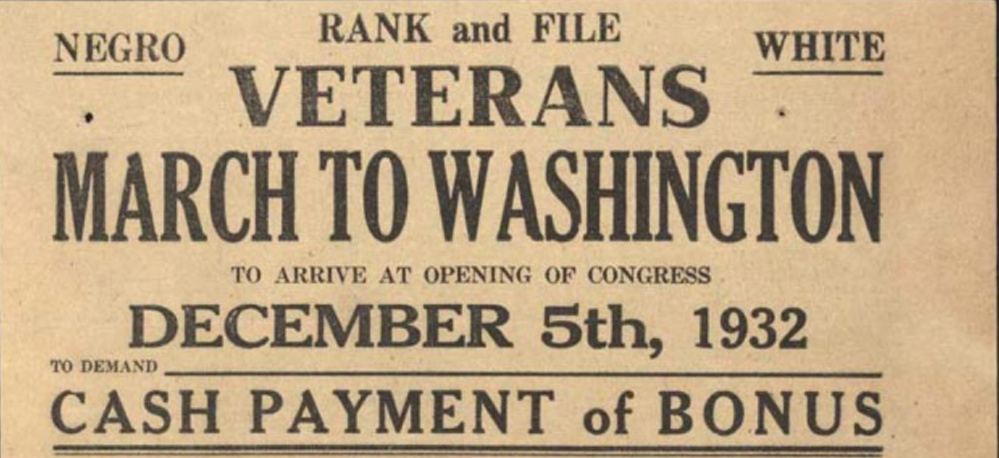
Picture courtesy of NCpedia
Conclusion
After World War I, the Great Depression meant that veteran soldiers were in a difficult position. They needed the bonuses that the government had promised to give them in the future and they needed it now. They organized and traveled to Washington, DC to begin the debate about receiving the bonuses early. While they were able to bring public attention to their cause, the Hoover administration did not respond diplomatically, sending troops to burn down the camps. The Bonus Army was still interested in the debate and returned to Washington after Roosevelt was elected. President Roosevelt used his wife to offer a diplomatic solution. President Roosevelt was not willing to pay the bonuses early but Congress, in 1936, passed a bill to give them the money nine years early. The actions of the Bonus Army changed politics, the way groups debated with the government, and how soldiers were compensated going forward.

